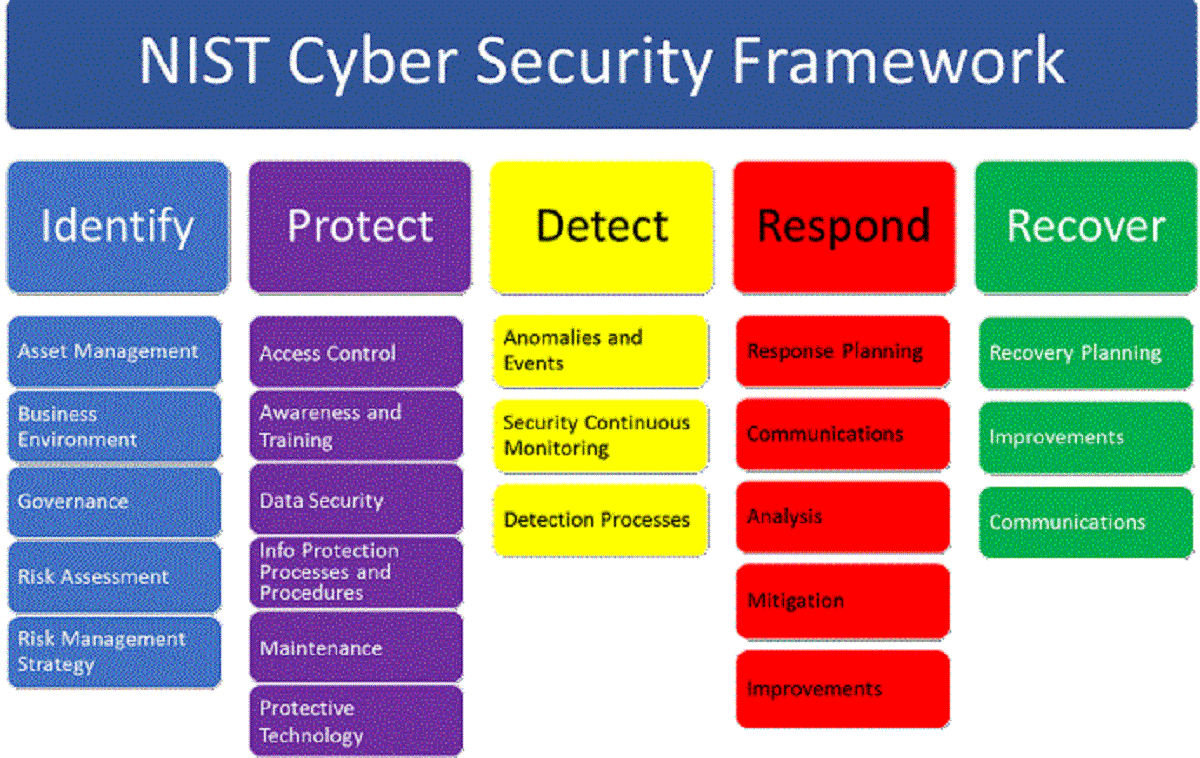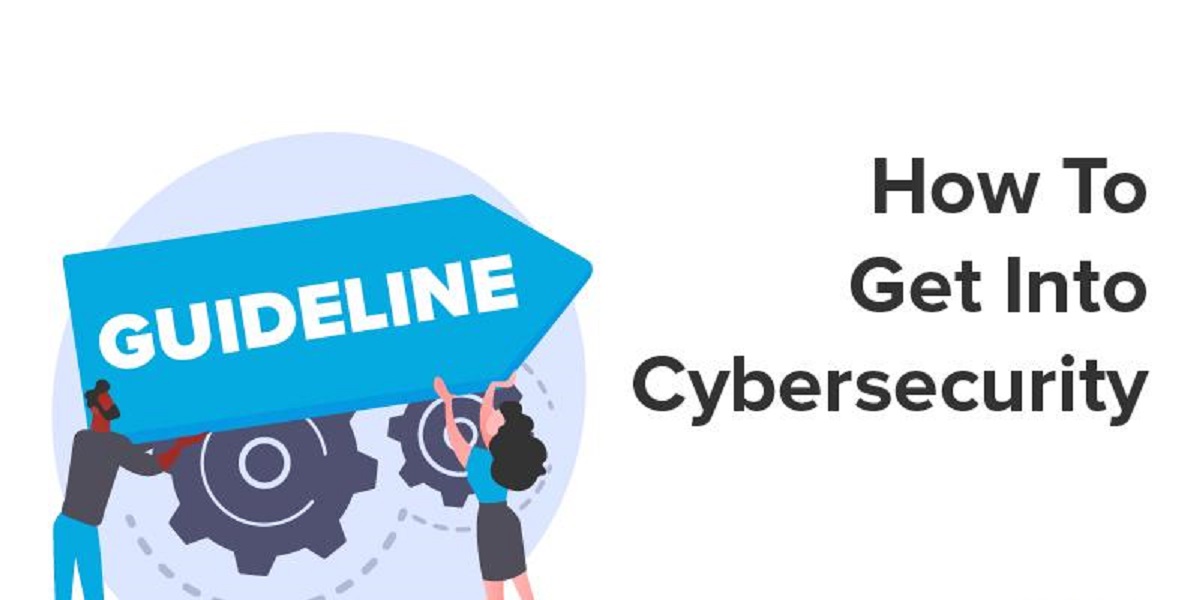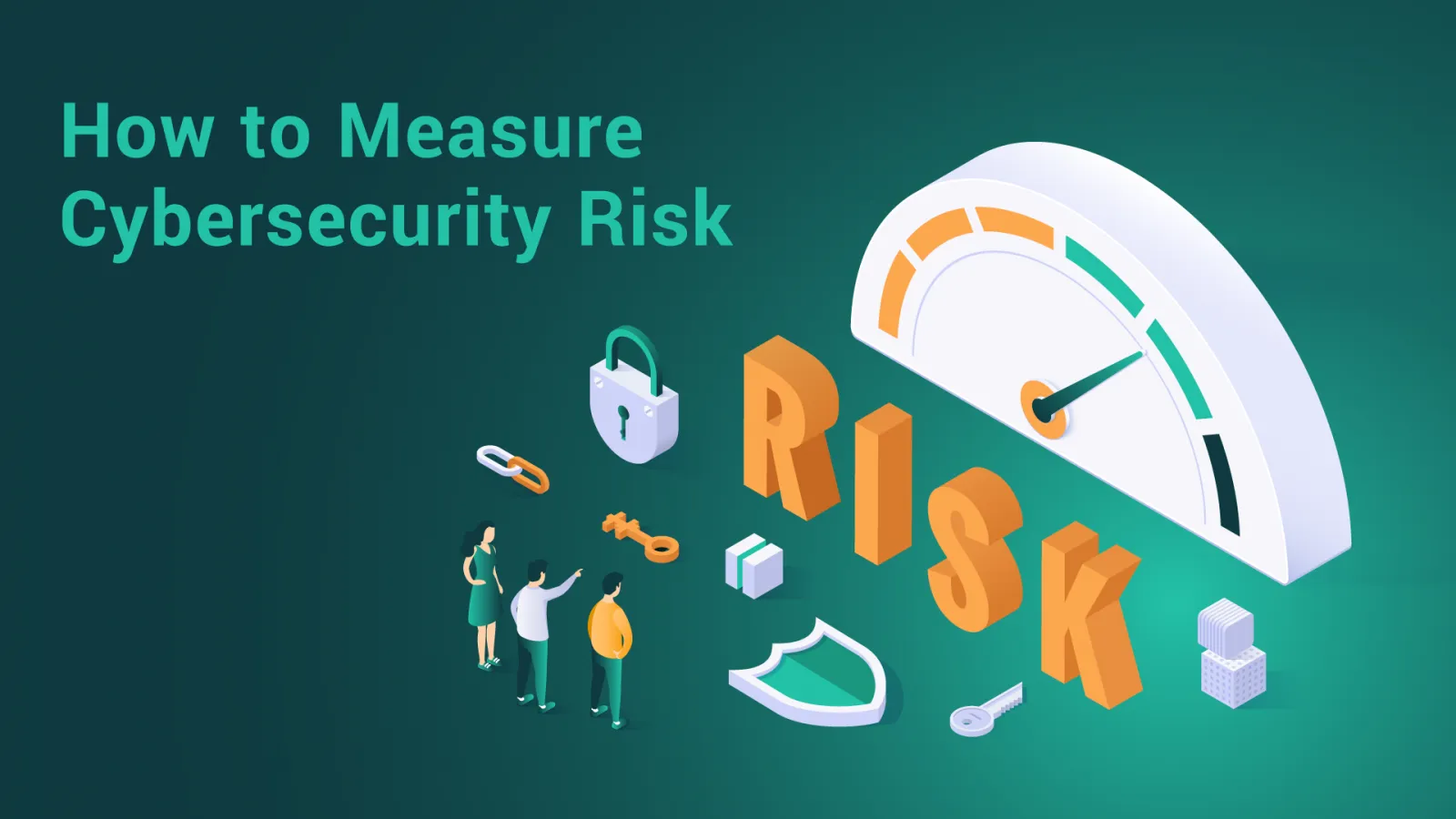Introduction
Welcome to the exciting world of cybersecurity! In today’s digital age, cybersecurity has become a paramount concern for businesses and individuals alike. With the increase in cyber threats and data breaches, the demand for reliable and skilled cybersecurity professionals has grown exponentially. This presents a golden opportunity for aspiring entrepreneurs like you to start a cybersecurity business and offer your expertise to protect others from malicious attacks.
Starting a cybersecurity business requires a unique blend of technical knowledge, business acumen, and a passion for safeguarding sensitive information. In this article, we will guide you through the essential steps to kick-start your cybersecurity venture and help you thrive in this competitive industry.
Before diving into the details, it’s crucial to understand the significance of cybersecurity. Cyber threats are constantly evolving, and organizations of all sizes need to be proactive in protecting their digital assets. From data breaches to ransomware attacks, the consequences of a security breach can be devastating – financial losses, reputational damage, and compromised customer trust. As a cybersecurity business owner, your mission is to provide cutting-edge solutions that protect your clients’ systems, networks, and sensitive data from these ever-present threats.
Building a successful cybersecurity business requires thorough planning, expertise, and an understanding of the industry. You must position yourself as a trusted advisor and an expert in the field. This article will provide you with a roadmap to establish and grow your cybersecurity business. So, let’s dive in and explore the exciting journey of entrepreneurship in the cybersecurity industry!
Understanding the Cybersecurity Industry
In order to start a successful cybersecurity business, it is crucial to have a solid understanding of the industry and its dynamics. The cybersecurity industry is vast and diverse, with various sectors and specialties. By familiarizing yourself with the different aspects of the industry, you can identify your niche and position your business for success.
The cybersecurity industry encompasses a wide range of services and solutions aimed at protecting digital systems and information from unauthorized access, theft, and damage. It includes areas such as network security, endpoint security, data protection, threat intelligence, risk assessment, and incident response.
One of the key drivers of growth in the cybersecurity industry is the increasing number and sophistication of cyber threats. Hackers and cybercriminals are constantly evolving their tactics, making it essential for businesses to invest in robust cybersecurity measures. This creates a significant demand for cybersecurity services, providing ample opportunities for entrepreneurs.
It is important to stay updated with the latest trends and developments in the industry. Attend cybersecurity conferences, join professional organizations, and follow industry publications to enhance your knowledge. This will not only help you stay abreast of the latest security threats but also enable you to offer cutting-edge solutions to your clients.
Moreover, understanding the regulatory landscape is crucial in the cybersecurity industry. Many sectors, such as finance and healthcare, have strict compliance requirements for data protection. Being well-versed in relevant regulations such as the General Data Protection Regulation (GDPR) and the Health Insurance Portability and Accountability Act (HIPAA) will give you a competitive edge in catering to clients in these sectors.
Another aspect to consider is the competitive landscape of the cybersecurity industry. Research potential competitors in your target market and identify their strengths and weaknesses. This will help you identify gaps in the market and differentiate your services.
Lastly, keep in mind that the cybersecurity industry is continuously evolving. Technology advancements, emerging threats, and changing regulations will impact the landscape. Being adaptable and open to learning is essential for long-term success in this industry.
By understanding the cybersecurity industry’s scope, trends, regulations, and competition, you can position your business strategically and capitalize on the growing demand for cybersecurity services.
Identifying Your Niche
As you delve deeper into the cybersecurity industry, it becomes evident that it is a broad field with diverse specialties. To stand out in the competitive landscape and attract your target audience, it is crucial to identify and carve out your niche. By focusing on a specific area within cybersecurity, you can position yourself as an expert and differentiate your business from the competition.
Start by evaluating your skills, experiences, and interests. What areas of cybersecurity do you have the most expertise in? Are there specific industries or types of clients that you have a passion for serving? Answering these questions will help you narrow down your niche and align it with your strengths and interests.
Consider the different segments of cybersecurity, such as network security, application security, cloud security, or data and privacy protection. Each segment has its own unique challenges and opportunities. You may choose to specialize in a specific segment or offer a comprehensive range of services, depending on your resources and capabilities.
Furthermore, consider the industries or sectors that you want to target. Industries such as finance, healthcare, or government have specific cybersecurity needs and compliance requirements. By catering to a specific industry, you can develop industry-specific expertise and tailor your services accordingly.
Researching the market demand and competition within your chosen niche is also vital. Is there a gap or underserved market within your niche that you can tap into? Analyze the demand for cybersecurity services in your target market, identify potential clients, and evaluate the competition. This information will help you refine your niche and develop a unique selling proposition.
Keep in mind that your niche should not be too narrow or too broad. Being too narrow may limit your potential client base, while being too broad may make it difficult to differentiate yourself. Strike a balance and find a niche where you can leverage your expertise and serve a specific segment of the market effectively.
Once you have identified your niche, it is important to communicate it clearly in your marketing messages. Position yourself as an expert in your chosen area, highlight your unique capabilities, and showcase the benefits of working with a specialized cybersecurity provider. This will help attract clients who are specifically looking for the services you offer.
Remember, identifying your niche is a critical step in establishing a successful cybersecurity business. By focusing on a specific area within the industry, you can differentiate yourself, attract your target audience, and position yourself as a trusted expert.
Creating a Business Plan
Before launching your cybersecurity business, it is essential to create a comprehensive business plan that outlines your goals, strategies, and financial projections. A well-crafted business plan serves as a roadmap for your venture, helping you stay focused and organized as you navigate the challenges of entrepreneurship.
Your business plan should include the following key components:
- Executive Summary: This section provides a high-level overview of your business, outlining your mission, vision, and the services you will offer. It should capture the attention of potential investors or partners.
- Company Description: Describe your cybersecurity business in detail, including its legal structure, location, and any unique features or competitive advantages.
- Market Analysis: Conduct thorough research on the cybersecurity market, including the size, growth trends, and potential target customers. Identify your target market segments, their needs, and their willingness to pay for cybersecurity services.
- Competitor Analysis: Assess the competitive landscape and identify your key competitors. Analyze their strengths and weaknesses, identify gaps in the market, and highlight how your business will differentiate itself from the competition.
- Service Offerings: Clearly define the cybersecurity services you will offer and explain how they address the needs of your target market. Outline any unique value propositions or specialized expertise that sets your services apart.
- Marketing and Sales Strategy: Outline your marketing and sales tactics to attract and acquire clients. Identify the channels you will use to reach your target audience, such as digital marketing, networking events, or partnerships.
- Operations and Management: Describe the organizational structure of your business, including key team members and their roles. Outline your operational processes, cybersecurity tools, and technologies you will utilize to deliver your services.
- Financial Projections: Provide a detailed financial forecast, including revenue projections, expenses, and cash flow analysis. Consider factors such as pricing models, recurring revenue streams, and any upfront investments required.
- Risk Assessment: Identify potential risks and challenges that your business may face, such as changing regulations or shortage of skilled professionals. Develop contingency plans to mitigate these risks.
A well-written business plan not only helps you clarify your ideas and strategies but also serves as a valuable document when seeking funding or attracting potential investors. Regularly review and update your business plan as your cybersecurity business evolves and grows.
Remember, a solid business plan acts as a compass, guiding your decisions and actions as you launch and scale your cybersecurity business.
Obtaining the Necessary Certifications and Training
In the cybersecurity industry, having the right certifications and training is crucial to establish your credibility and expertise. As technology evolves and cyber threats become more sophisticated, staying updated with the latest industry standards and best practices is essential. Obtaining relevant certifications and training will not only enhance your knowledge and skills but also provide a competitive edge in the market.
Here are some key certifications and training programs to consider:
- Certified Information Systems Security Professional (CISSP): Widely recognized as one of the leading certifications in the cybersecurity field, CISSP validates your knowledge and expertise in various domains such as security and risk management, asset security, and cryptography.
- CompTIA Security+: This entry-level certification covers the fundamentals of cybersecurity, including network security, risk management, and incident response. It provides a solid foundation for a career in cybersecurity.
- Certified Ethical Hacker (CEH): CEH focuses on the ethical hacking techniques and methodologies used to identify vulnerabilities in systems and networks. This certification is highly valuable for professionals involved in penetration testing and vulnerability assessment.
- GIAC Certifications: The Global Information Assurance Certification (GIAC) offers a variety of certifications in areas such as incident response, forensic analysis, and security leadership. These certifications are highly specialized and cater to specific cybersecurity roles.
- Cloud Security Certifications: As more businesses transition to cloud-based services, having expertise in cloud security is in high demand. Certifications such as Certified Cloud Security Professional (CCSP) and AWS Certified Security – Specialty can demonstrate your proficiency in securing cloud environments.
In addition to certifications, continuous learning and training play a significant role in staying ahead in the cybersecurity industry. Stay connected with industry publications, attend webinars, and participate in workshops and conferences to expand your knowledge and network with industry professionals.
Collaborating with cybersecurity vendors and industry associations can also provide valuable training resources. Many vendors offer product-specific training and certifications, which can enhance your skills in implementing and managing their cybersecurity solutions.
It is crucial to tailor your certifications and training based on your chosen niche and target market. Identify the specific certifications that are most relevant to your clients’ needs and industry requirements. This will not only demonstrate your expertise but also help you attract clients who value industry-specific knowledge.
Remember to regularly update your certifications and skills as the cybersecurity landscape evolves. Continuous learning and professional development are essential for success in this dynamic industry.
Building Your Team
Building a skilled and dedicated team is essential for the success of your cybersecurity business. As the demand for cybersecurity services continues to grow, having a team of talented professionals will enable you to deliver high-quality services, expand your capabilities, and handle a higher volume of clients. Here are some key steps to consider when building your team:
- Identify the Roles and Skill Sets: Determine the specific roles and positions you need to fill in your cybersecurity team. Consider the different domains of cybersecurity, such as network security, incident response, vulnerability assessment, or security architecture. Identify the skills and qualifications required for each role.
- Recruitment and Hiring: Develop a comprehensive hiring strategy to attract top talent. Leverage online job platforms, professional networks, and industry-specific forums to spread the word about job openings. Conduct thorough interviews, assess technical skills, and evaluate cultural fit to make informed hiring decisions.
- Invest in Professional Development: Cybersecurity is a rapidly evolving field, and investing in the ongoing professional development of your team is crucial. Provide opportunities for training, certifications, and attending industry conferences. This will keep your team up-to-date with the latest trends and technologies, enhancing their expertise and effectiveness.
- Create a Collaborative Culture: Foster a collaborative and inclusive culture within your team. Encourage open communication, knowledge sharing, and teamwork. Regular team meetings and brainstorming sessions can promote creativity and innovation.
- Encourage Specialization and Cross-training: Cybersecurity is a multifaceted field, and encouraging specialization among your team members can enhance your overall capabilities. However, it is also important to promote cross-training so that individuals have a basic understanding of other areas within cybersecurity. This allows for seamless collaboration and flexibility within the team.
- Provide Adequate Resources: Equip your team with the necessary tools, software, and hardware to perform their tasks effectively. Access to the latest cybersecurity technologies and tools is crucial for delivering top-notch services to your clients.
- Promote a Strong Ethical Foundation: As a cybersecurity business, ethical conduct and a strong commitment to integrity are paramount. Instill ethical values and best practices in your team members. Emphasize the importance of confidentiality, trustworthiness, and responsible information handling.
Remember, building a strong team is not just about hiring the right individuals. It is also about fostering a positive work environment, encouraging professional growth, and empowering your team members. A knowledgeable, skilled, and motivated team will not only deliver exceptional cybersecurity services but also contribute to the success and growth of your business.
Developing Your Service Offerings
As a cybersecurity business owner, developing a comprehensive range of service offerings is crucial to meet the diverse needs of your clients. Your service offerings should align with your target market, differentiate your business from competitors, and provide value to your clients. Here are some key steps to consider when developing your service offerings:
- Understand Client Needs: Conduct market research and engage with potential clients to understand their cybersecurity challenges, pain points, and priorities. This will help you tailor your services to meet their specific needs.
- Offer a Variety of Services: Develop a range of services that cater to different aspects of cybersecurity. This could include services such as network security assessments, vulnerability scanning and remediation, security awareness training, incident response, or risk assessment and management.
- Focus on Specialization: Consider specializing in a specific area of cybersecurity to differentiate yourself from competitors. This could be a niche industry, such as healthcare or finance, or a specialized service, such as cloud security or penetration testing.
- Create Service Packages: Package your services into comprehensive offerings that provide value to clients. Develop tiered packages based on the level of service and features included, offering options that fit different budget levels and cybersecurity requirements.
- Stay Updated with Industry Trends: Continuously monitor industry trends and emerging technologies to identify new service opportunities. The cybersecurity landscape is constantly evolving, and offering services that address the latest threats and challenges will keep you ahead of the curve.
- Leverage Partnerships: Consider partnering with other cybersecurity organizations or vendors to expand the scope of your service offerings. This can enable you to offer complementary services or access specialized expertise that may not be available in-house.
- Provide Value-Added Services: Look for opportunities to enhance your service offerings by providing additional value to clients. This could include services such as security awareness training, continuous monitoring and threat intelligence, or incident response retainer agreements.
- Focus on Client Education: Educate your clients about the importance of cybersecurity and the specific services you offer. Create educational resources, such as whitepapers or webinars, to raise awareness and position yourself as a trusted advisor.
Remember to continuously evaluate and refine your service offerings based on client feedback, market demand, and industry trends. Flexibility and adaptability are key in the ever-changing field of cybersecurity. By developing comprehensive and tailored service offerings, you can position your business as a trusted cybersecurity partner, attract clients, and drive your business forward.
Setting Up Your Office and IT Infrastructure
Setting up a well-equipped office and reliable IT infrastructure is crucial for the smooth functioning and success of your cybersecurity business. An efficient and secure workspace allows you to deliver your services effectively and protect your clients’ sensitive information. Here are key steps to consider when setting up your office and IT infrastructure:
- Choose a Suitable Location: Select a location that aligns with your business needs and supports your growth plans. Consider factors such as accessibility, proximity to potential clients, availability of skilled professionals, and cost.
- Design a Productive Workspace: Create an office environment that promotes productivity and collaboration. Consider factors such as layout, ergonomic furniture, and the use of natural light. Develop a space that fosters creativity and enables efficient workflow.
- Secure Your Physical Space: Implement security measures to protect your office premises and sensitive information. This includes installing security systems, restricted access controls, and data backup systems.
- Procure Essential Equipment: Invest in reliable hardware and software that supports your core operations. This includes computers, servers, network equipment, firewalls, intrusion detection systems, and antivirus software.
- Establish Robust Data Storage and Backup Systems: Implement secure data storage solutions to protect your clients’ information. Consider using encrypted cloud storage or on-premises servers with regular data backups to ensure data resilience and facilitate disaster recovery.
- Implement Network Security Measures: Secure your network infrastructure to protect against unauthorized access and cyber threats. Consider utilizing firewalls, VPNs, intrusion detection and prevention systems, and regular network audits to maintain a secure network environment.
- Implement Robust Cybersecurity Measures: Ensure that your IT infrastructure is equipped with up-to-date security measures. This includes utilizing strong passwords, multi-factor authentication, and regular software patches and updates. Educate your team on cybersecurity best practices to create a culture of security within your organization.
- Establish Communication and Collaboration Tools: Utilize reliable communication tools to facilitate collaboration within your team and with clients. This can include video conferencing platforms, project management software, and secure messaging applications.
- Ensure Compliance with Data Privacy Regulations: Familiarize yourself with applicable data privacy laws and regulations, such as the GDPR or HIPAA, and ensure that your IT infrastructure and practices comply with the necessary requirements.
- Develop a Disaster Recovery Plan: Prepare for unforeseen events by developing a comprehensive disaster recovery plan. This includes creating backup systems, establishing protocols for incident response, and regularly testing and updating your recovery plan.
Setting up your office and IT infrastructure may require significant investment, but it is an essential investment in the success and security of your cybersecurity business. By establishing a well-equipped and secure workspace, you can provide reliable services to clients and ensure the confidentiality and integrity of their data.
Marketing and Promoting Your Cybersecurity Business
Marketing is essential for promoting your cybersecurity business and attracting clients in a competitive industry. Effective marketing strategies can help you build brand awareness, establish credibility, and generate leads. Here are key steps to consider when marketing and promoting your cybersecurity business:
- Define Your Target Audience: Identify your ideal clients and understand their specific needs and pain points. This will allow you to tailor your marketing messages and strategies to resonate with your target audience.
- Develop a Strong Brand Identity: Create a compelling brand image that reflects your values, expertise, and unique selling proposition. Design a professional logo, website, and marketing materials that convey a consistent and trustworthy brand message.
- Build an Online Presence: Establish a professional website that presents your services, expertise, and contact information. Optimize your website for search engines (SEO) to increase visibility in organic search results. Utilize content marketing strategies, such as blogging and whitepapers, to provide valuable insights and establish yourself as a thought leader.
- Utilize Social Media: Leverage social media platforms to engage with your target audience, share industry insights, and promote your services. Participate in relevant cybersecurity discussions, join professional groups, and showcase your expertise through informative posts and articles.
- Network and Collaborate: Attend industry events, conferences, and seminars to expand your professional network. Build relationships with potential clients, partners, and influencers in the cybersecurity industry. Collaborate with complementary businesses to reach wider audiences and enhance your service offerings.
- Offer Thought Leadership and Educational Content: Demonstrate your expertise by offering educational content, such as webinars, whitepapers, and case studies. This not only positions you as a trusted authority but also attracts potential clients who are seeking valuable insights and guidance.
- Leverage Online Advertising: Consider using paid online advertising channels, such as Google Ads or social media ads, to increase your visibility and reach. Target your ads to specific demographics, geographic areas, or industries to maximize their effectiveness.
- Solicit Client Testimonials: Request testimonials from satisfied clients and showcase them on your website and marketing materials. Positive feedback from happy clients can significantly impact your reputation and credibility.
- Invest in Search Engine Optimization (SEO): Optimize your website and content for relevant keywords and phrases to improve your search engine rankings. This will increase organic traffic to your site and attract potential clients who are actively searching for cybersecurity services.
- Monitor and Evaluate Results: Continuously measure and analyze the effectiveness of your marketing strategies. Track metrics such as website traffic, lead generation, and conversion rates. Use this data to fine-tune your marketing efforts and identify areas for improvement.
Remember, marketing is an ongoing process that requires consistency, adaptability, and a deep understanding of your target audience. By implementing a well-rounded marketing strategy, you can increase brand visibility, attract clients, and position your cybersecurity business for success.
Securing Your First Clients
Securing your first clients is an exciting milestone for your cybersecurity business. It takes a strategic approach, effective communication, and building trust with potential clients in order to successfully acquire your initial client base. Here are key steps to consider when securing your first clients:
- Refine Your Value Proposition: Clearly define the value your cybersecurity business brings to clients. Identify the unique benefits and solutions you offer to address their specific cybersecurity needs. This will help you effectively communicate your value to potential clients.
- Create a Targeted Marketing Approach: Tailor your marketing strategies to reach your ideal client profile. Identify industries or sectors where your expertise and services are most relevant, and focus your marketing efforts accordingly. Craft compelling messages and materials that speak directly to the pain points and concerns of your target audience.
- Develop a Compelling Proposal: When approaching potential clients, prepare a well-crafted proposal that addresses their specific cybersecurity challenges. Clearly outline the services you can provide, the benefits they will receive, and your competitive pricing. A professionally presented proposal demonstrates your professionalism and attention to detail.
- Network and Build Relationships: Attend industry events, join professional organizations, and participate in online forums to connect with potential clients. Engage in meaningful conversations, offer valuable insights, and demonstrate your expertise. Building relationships and establishing trust is crucial in the cybersecurity industry.
- Offer Pilot Projects or Proof of Concept: Consider providing pilot projects or proof of concept engagements to showcase the value and effectiveness of your services. This can help alleviate concerns and build trust in your ability to deliver results.
- Ask for Referrals: Reach out to your existing network, including colleagues, friends, and family, and ask for referrals to potential clients. Word-of-mouth referrals carry significant weight and can provide a valuable entry point to securing your first clients.
- Offer Competitive Pricing and Incentives: As you’re starting out, consider offering competitive pricing or introductory incentives to attract clients. This can help you overcome the challenge of building a client base from scratch.
- Deliver Exceptional Service: Once you’ve secured your first clients, prioritize delivering exceptional service. Exceed their expectations, be responsive to their needs, and provide proactive communication. Satisfied clients will become brand ambassadors and can generate positive referrals and testimonials.
- Solicit Testimonials and Reviews: After successfully completing projects, ask your clients for testimonials or reviews that you can use for future marketing efforts. Positive feedback from satisfied clients can help build credibility and trust with potential clients.
- Continuously Evolve and Adapt: Learn from your early client engagements and adapt your services and strategies based on feedback and market trends. Be receptive to suggestions for improvement and constantly strive to enhance the value you provide to clients.
Securing your first clients requires persistence, strategic marketing, and demonstrating value. With a well-defined value proposition, targeted marketing efforts, and a commitment to providing exceptional service, you can position your cybersecurity business to secure those initial clients and build a solid foundation for future growth.
Managing and Growing Your Business
Once you have secured your first clients and established your cybersecurity business, it’s important to focus on managing and growing your company in order to achieve long-term success. Managing and growing your business requires strategic planning, effective leadership, and a commitment to continuous improvement. Here are key steps to consider when managing and growing your cybersecurity business:
- Develop a Strong Organizational Structure: As your business grows, establish a well-defined organizational structure with clear roles and responsibilities. Assign tasks and projects based on individuals’ strengths and expertise. Foster a positive and collaborative work culture that encourages innovation and professional growth.
- Set Measurable Goals and Key Performance Indicators (KPIs): Establish specific, measurable, attainable, relevant, and time-bound (SMART) goals for your business. Define KPIs that align with these goals, such as revenue growth, customer satisfaction, or employee productivity, and regularly track and evaluate your performance against these metrics.
- Invest in Technology and Infrastructure: Continuously assess and invest in technology and infrastructure that will support your business operations and ensure scalability. Upgrade your cybersecurity tools, invest in automation and analytics systems, and keep up with the latest industry trends. This will help streamline your processes, improve efficiency, and stay ahead of the competition.
- Focus on Client Retention: While attracting new clients is important, retaining existing clients is equally crucial for long-term success. Foster strong relationships with your clients, exceed their expectations, and provide ongoing value and support. Regularly communicate with your clients to understand their evolving needs and offer relevant solutions.
- Develop Strategic Partnerships: Collaborate with other businesses, such as IT service providers or cybersecurity technology vendors, to expand your service offerings and reach a wider client base. Strategic partnerships can provide access to new markets, complementary expertise, and increased credibility.
- Invest in Employee Training and Development: Continuously invest in your team’s training and development to ensure they stay updated with the latest cybersecurity trends and technologies. Encourage professional certifications, organize internal training sessions, and provide opportunities for career growth. A knowledgeable and skilled team will drive the success of your business.
- Implement Effective Project Management and Processes: Develop and implement efficient project management methodologies and processes to ensure smooth project execution, on-time delivery, and client satisfaction. Regularly evaluate and improve your project management practices to optimize performance and productivity.
- Maintain a Focus on Cybersecurity: As a cybersecurity business, prioritize the security and protection of your own systems and data. Implement robust security measures, conduct regular vulnerability assessments, and adhere to industry best practices. Taking your own cybersecurity seriously will reinforce your credibility and trustworthiness with clients.
- Monitor Market Trends and Adapt: Stay abreast of industry trends, emerging technologies, and evolving client needs. Continuously monitor the competitive landscape and adapt your services and strategies accordingly. Embrace innovation and proactively anticipate changes in the cybersecurity industry.
- Seek Customer Feedback and Act on It: Regularly solicit feedback from your clients to gauge their satisfaction and identify areas for improvement. Act on the feedback received and make necessary adjustments to enhance the quality of your services. Listening to your clients will help you build stronger relationships and better meet their evolving needs.
Successfully managing and growing your cybersecurity business requires a combination of strategic planning, investment in resources, a focus on client satisfaction, and a commitment to continuous improvement. By staying proactive, adapting to market dynamics, and nurturing your team and client relationships, you can position your business for long-term success and achieve your growth objectives.
Conclusion
Congratulations on exploring the steps to start and manage a successful cybersecurity business! The cybersecurity industry offers immense opportunities for entrepreneurs who are passionate about protecting businesses and individuals from ever-evolving digital threats. By following the steps outlined in this guide, you can lay a strong foundation for your cybersecurity business and set yourself up for long-term success.
Remember, understanding the cybersecurity industry, identifying your niche, and developing a well-crafted business plan are crucial first steps. Obtaining the necessary certifications and training, building a skilled team, and developing comprehensive service offerings will position you as a trusted expert.
Setting up an effective office and secure IT infrastructure, together with a strategic marketing approach, will help you attract and retain clients. With a focus on client satisfaction and continuously innovating, you can manage and grow your business, while staying ahead of the competition.
As you embark on your journey, keep in mind that the cybersecurity landscape is constantly evolving. Stay updated on the latest industry trends, embrace new technologies, and be adaptable to change. Continually invest in your team’s skills and knowledge to keep your services cutting-edge.
Building a cybersecurity business requires dedication, perseverance, and a commitment to providing exceptional service. By prioritizing the security and success of your clients, you can establish your business as a trusted partner in safeguarding their digital assets.
Best of luck as you start your cybersecurity business, and may you thrive in this exciting industry!

























